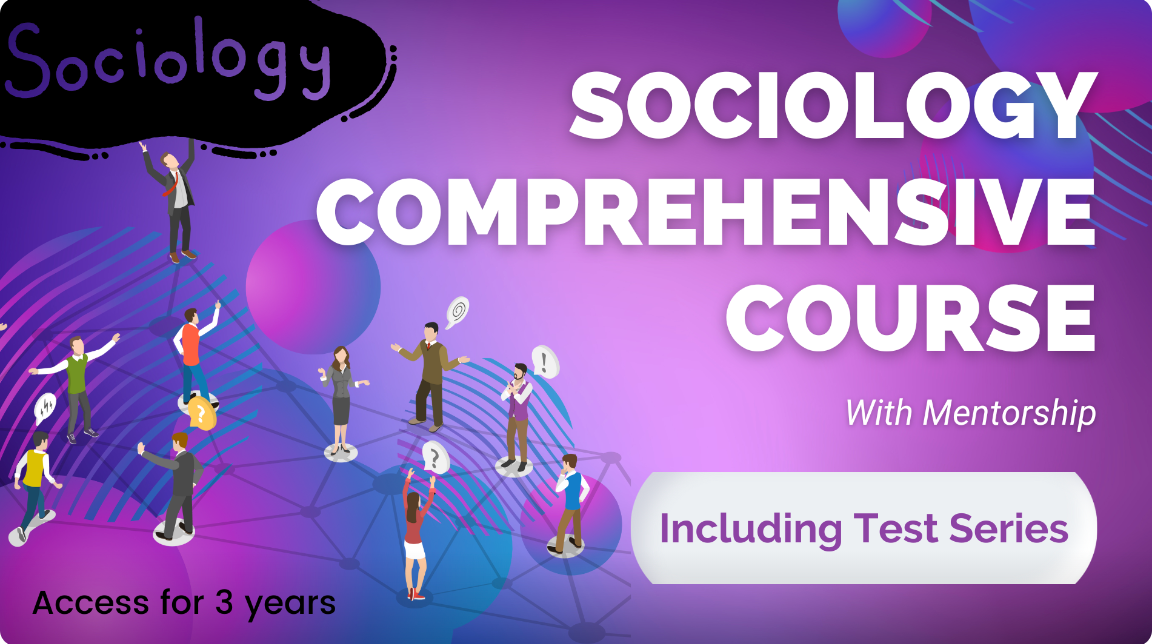Questions
- How does the concept of the "circulation of elites" explain the dynamic shifts in leadership and power within societies? (10 Marks)
- Civil society and democracy mutually reinforce one another. Evaluate. (10 Marks)
Download Model Structures PDF
Model Structures
Q1. How does the concept of the "circulation of elites" explain the dynamic shifts in leadership and power within societies? (10 Marks)
- The concept of ‘Circulation of elite’. It can be explained in at least two ways. One of them is that the ‘circulation of the elite’ is the process in which one elite replaces the other.
- The second reference is the movement of people from non-elite groups to elite groups and vice-versa.
- This theory is the major contribution by Vilfredo Pareto who described elites as the strongest, most energetic and capable of both good and evil.
- He mentioned them in occupying a higher stratum, for example, in the economic approach they are wealthy enough than any other class of people, in the political approach they are the rulers of all, in the religious approach they are most holy in nature, in the ethical approach they are more virtuous among everyone around them. This clears the idea of the circulation of the elite in all the phrases of societal divisions.
- The elite class people are minorities who are observed to have the talent, intelligence, ability, and leadership to occupy positions of power. These minorities sometimes influence government decisions and gain dominant positions in society.
- When looking at all these “elite drama” in society with all classes of people, the immoral side of other people can never be ignored. When these upper-class people are acting for the benefit of improving themselves, there is a set of people suffering from such competition. This usually is the result of the circulation of the elite as this not only predicts the circumstance of the elite class but also the context of people out of these minority groups.
- According to scholars, every society has class division leading to differentiating them as elite and non-elite. Further the elite group has been categorised into governing elite and the non-governing elite.
- With such classification and following the Machiavellian rule, the sociologist Pareto illustrated this with the example of Lion and Foxes.
- The characteristics of elite members, treating them as a gifted group of people, keep them in a higher position by giving them all the power and authority to make differences in society that eventually affect the non-elite members also. This concept gives a strong analysis of the theory of the circulation of the elite.
Conclusion
- According to the scholars, the effect on the non-elite has not been given much importance as the theory concentrates more on explaining the significant role played by the elite class in society.
Q2. Civil society and democracy mutually reinforce one another. Evaluate. (10 Marks)
Introduction
- According to the World Bank: “Civil society refers to a wide array of organisations: community groups, non-governmental organisations [NGOs], labour unions, indigenous groups, charitable organisations, faith-based organisations, professional associations, and foundations.”
- Democracy refers to the form of government ruled by its own people. The country’s citizens are solely responsible for the formation of a governing body by exercising their power to directly elect their representative by majority rule.
Civil society diversified into many roles and today it is seen as representing, in true sense, the 'people's power'.
- According to Tocqueville, civil society plays a key role in the decentralisation of governance and democratic governance. This activity not only affects society but the country also is based on the institutions of democracy and the process of the country.
- According to Cox, civil society is seen as an arena to fight for and construct an alternative mode of democracy, in accordance with the needs of particular social classes in exclusion.
- According to Robert Putnam, the role of civil society is closely related to social capital, that is through norms and networks to enhance the quality of life, which both can build trust and reciprocity in achieving goals with collective actions.
Both civil society and democracy work in tandem to make each other more effective and efficient. The various areas where civil society acts as a promoter and advances democratic ideals and principles are
- Public Education: Awareness is key to any democratic system. An informed citizenry can sustain effective democracy. Civic associations can contribute a lot by raising public awareness and understanding of worldwide existing laws and regulatory institutions.
- Voice to Stakeholders: Civil society is an advocate of the weaker sections point of view. Civic associations approach the concerned parties in the neglected social circles like poor, women, or SC's and ST's to relay information, testimonials and analysis to government agencies about their needs and demands.
- Policy Inputs: Government policy formulation is considerably influenced from the inputs given by the civil society not only at home but also in the international area. For e.g. civic groups have been pioneers in sparking debates about ecological imbalances, poverty and its related ill effects, etc.
- Transparency of Governance: Vigilant civic mobilisation ensures transparency in governance. Constant pressure from civil society has led to bringing in regulatory frameworks and operations into the open, where they could be accessed for public scrutiny.
- Public Accountability: Civic groups keep eye on the implementation and effect of policies regarding people, and press for corrective measures when the consequences are adverse. Civil society working at the global level in the World Bank or IMF have often pushed authorities in global governance to take greater responsibility for their actions and policies.
- Legitimacy: The sum total of the preceding action of civil society could lead to a legitimate democratic rule. Legitimate rule prevails when people concede that an authority has a right to govern and that they have a duty to obey its directives.
Conclusion
- Thus Civil society and democracy share a symbiotic relation between each other. Civil society can maintain or establish a democracy in a country that is based on its function.

